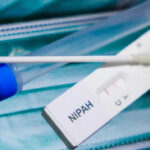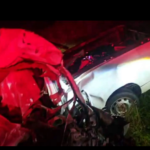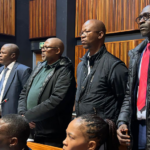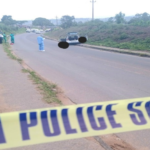Goma, DRC – A crisis of alarming proportions is unfolding in the Democratic Republic of Congo (DRC), where South African soldiers deployed as part of a regional peacekeeping force find themselves embroiled in a desperate struggle for survival against the M23 rebel group.
By Saturday afternoon, the situation had deteriorated drastically, leaving South African troops severely depleted in terms of ammunition, supplies, and morale. The initial reports of a fierce battle at Saké, which began on Thursday morning, have now revealed a grim reality of a besieged base, facing a relentless enemy with superior resources.
The scale of the crisis became apparent as reports emerged detailing the dire circumstances faced by the South African contingent. By Friday, they were completely out of ammunition, forced to await desperately needed resupply from South Africa. The Saké base, initially described as a vital defensive position, remains under siege, but the soldiers are reportedly exhausted and demoralised, their spirits crushed by the relentless assault. One soldier's stark voice message captured the gravity of the situation: "It is bad. It is very bad."
The initial assault on Thursday morning, beginning around 5:30 am, caught the South African soldiers completely off guard. A text message from a frightened soldier to a loved one in South Africa described the scene: "We are surrounded by M23. They started shooting at us from the mountains."
The ensuing battle was intense, with South African troops utilising anti-aircraft guns (23mm), long-range artillery (60mm and 120mm), light machine guns, 60mm mortars, and multiple grenade launchers. Despite their valiant efforts, the M23 rebels maintained their encirclement of the base.
The casualty figures are grim. As of Saturday evening, the South African National Defence Force (SANDF) confirmed nine South African soldiers had been killed and at least 15 injured. The injuries sustained are severe, ranging from a leg amputation to serious head wounds and shrapnel injuries to arms, legs, and feet.

The psychological toll is also significant, with at least one soldier suffering a panic attack. For many of these soldiers, this is their first foreign deployment, adding another layer of trauma to the already dire situation. The initial reports of two deaths on Thursday were followed by three more on Friday, a testament to the brutal and unrelenting nature of the fighting.
The SANDF's response to the crisis has been met with criticism. Two Ilyushin 76 cargo planes were dispatched from Waterkloof airbase on Saturday, but the decision on sending additional manpower remains pending. Furthermore, concerns have been raised about the lack of a special forces unit to gather intelligence and assist in strategic planning.
Sources within the defence industry revealed that the military has been frantically searching for international suppliers of armed drones in the past two days, highlighting a critical deficiency in their capabilities. While presentations on armed drones have been made to the military in the past, no orders have ever been placed. The current global shortage of drones, exacerbated by numerous international conflicts, means a waiting time of three months for any new orders.
Adding to the already dire situation, the M23 rebels deployed their own armed drones, targeting sniper positions manned by Congolese soldiers. The South African anti-aircraft guns, potentially capable of countering this threat, were reportedly equipped with the wrong ammunition, requiring a special type of fragmentation ammunition.
The Congolese FARDC forces and special forces deployed alongside the South African troops at Saké allegedly abandoned their positions, leaving the South Africans, Tanzanians, and Malawians to bear the brunt of the attack. The lack of adequate support and the apparent desertion of allied forces have exacerbated the crisis.

However, insiders expressed concern that such a high-risk visit during an active combat operation diverted resources and attention from the beleaguered troops on the ground. The arrival of a VIP flight would undoubtedly have been noticed by the M23 rebels, potentially increasing the risk to both the visiting delegation and the troops already engaged in combat.
Deputy Minister Bantu Holomisa confirmed Motshekga's safe return on Saturday afternoon, shortly before reports emerged of renewed M23 attacks on the outskirts of Goma. The subsequent dispatch of two Oryx helicopters to Beni suggests concerns about the security of vital assets in the region.
The M23 rebels' ambitions extend beyond Saké. They reportedly aim to capture Goma, having already seized several towns in the region. The United Nations has initiated the evacuation of its staff to Entebbe, Uganda, adding to the sense of urgency and escalating the crisis. The potential closure of N’djili airport would have catastrophic consequences for logistical support to the troops in the DRC, potentially rendering any resupply efforts impossible.
The lack of communication from the SANDF regarding the situation has also sparked outrage. Advocate Pikkie Greeff of the SA National Defence Union criticised the military's silence, stating, "repeated warnings from the start that our soldiers have insufficient support for this deployment…have consistently fallen on deaf ears."
Greeff reiterated the union's stance that troops should only be deployed with complete logistical and support systems in place, a condition clearly not met in this instance. He also condemned the military's communication strategy, stating, "The military owes it not only to the families to keep everyone informed but to the entire country whose tax money pays for the operation."
The silence from the SANDF contrasts sharply with a statement from Monusco, the United Nations peacekeeping force in the DRC. Monusco confirmed that its forces are supporting the Southern African troops and the FARDC with heavy artillery during Operation Springbok, an operation aimed at preventing further territorial gains by the M23 rebels.
Monusco also deployed Congolese attack helicopters to target M23 outposts. Monusco reported nine peacekeepers injured, but did not disclose their nationalities. Neither the SANDF, Monusco, nor Samidrc have confirmed the identities of the deceased South African soldiers, although military chaplains were dispatched to inform their next of kin.
Despite the dire circumstances, the South African soldiers at Saké continue to hold their positions, preventing the M23 rebels from advancing. However, sources indicate that maintaining their defensive position is becoming increasingly difficult, with limited air support, primarily from a single DRC helicopter.
Even the deployment of South African G5 guns has failed to halt the M23 advance, and sources suggest the rebels are far from finished with their offensive. The situation remains precarious, with the potential for further casualties and a significant escalation of the conflict. The lack of adequate support, coupled with the relentless attacks by a well-equipped enemy, paints a grim picture for the South African troops in the DRC.

Follow Us on Twitter











